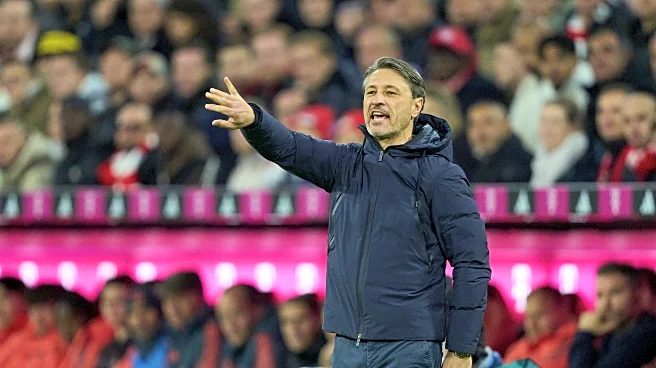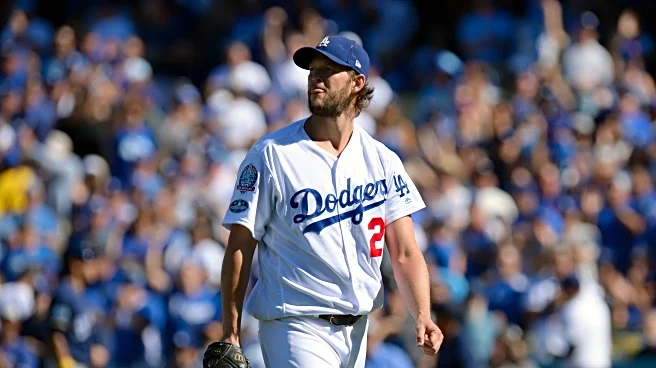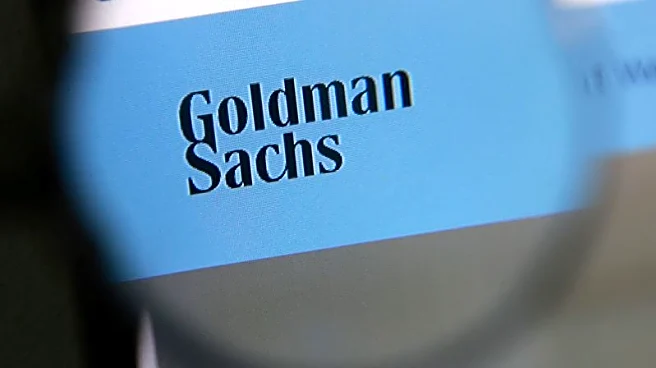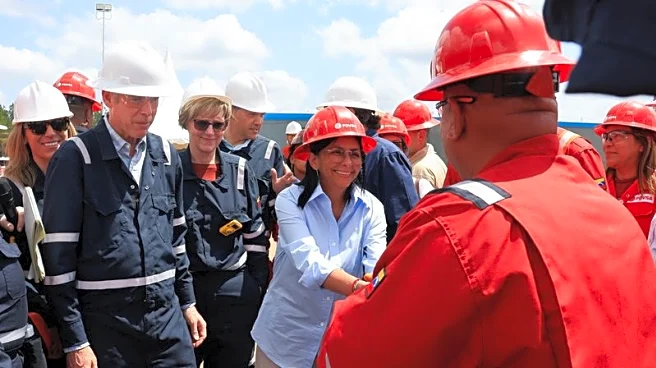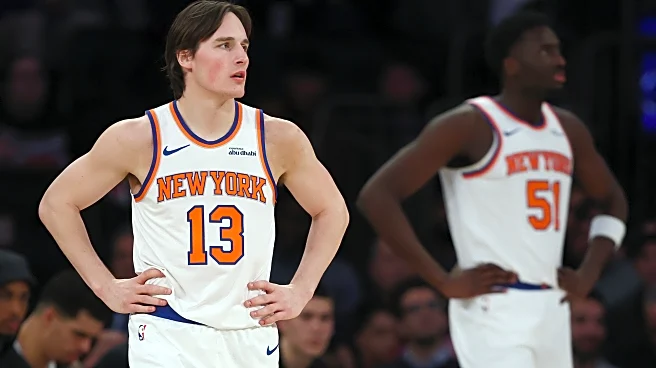Of all the narratives floating around in the aftermath of yesterday’s edition of Der Klassiker, the one most prevalent among Borussia Dortmund fans, other than perhaps “Wow, this Harry Kane guy is good
at football,” is the notion that Niko Kovac’s substitutes—including both the timing and the players involved—either outright cost Dortmund the game, or drastically hindered a comeback effort that was well within reach.
I don’t think these narratives are entirely unfair. As I will get into, I believe Niko Kovac absolutely deserves criticism for how he managed the game yesterday, including some of the subs. However, I also believe that there are ways in which his decisions were justifiable, and were borne more out of necessity posed by problems with squad construction than bad rationale on his part.
For background, here’s an abbreviated timeline of the key events:
1st Half: A lineup filled with defensive players and only Karim Adeyemi and Serhou Guirassy up top manages to cling to the ropes enough to only be down 1-0 at half-time.
Half-time: Kovac substitutes Ramy Bensebaini for Niklas Süle. Felix Nmecha and Pascal Groß also switch positions.
73rd Minute: Jobe Bellingham replaces Marcel Sabitzer.
74th Minute: Maxi Beier replaces Karim Adeyemi.
78th Minute: Michael Olise scores Bayern’s second goal.
82nd Minute: Julian Brandt replaces Pascal Groß.
83rd Minute: Fabio Silva replaces Serhou Guirassy.
85th Minute: Brandt scores to make it 2-1.
Let’s start with half-time. BVB have just spent 45 minutes parking the bus. They have 0 shots on target to show for it and are one goal down. Kovac’s strategy of trying to keep the game scoreless to maybe steal a winner in the second half may have been justified, but it failed. At this point, things need to change. Kovac responds by making tactical adjustments using the players he has already deployed, with the exception of swapping Süle for Bensebaini. When BVB take to the pitch for the second half, Julian Ryerson and Daniel Svensson are positioned much higher, while Pascal Groß is now in a more advanced position in front of a much deeper Felix Nmecha.
To what extent this strategy “worked” is hard to say because Bayern absolutely played much more conservatively than they did in the first half, but Dortmund undoubtedly looked much stronger. They held much more possession and created a few scoring chances, including a massive chance right in front of goal that Karim Adeyemi sliced wide.
In the first few phases of the second half, you could tell BVB were on the front foot, and a lot of folks were screaming at Kovac to be more aggressive and go for the kill. I think this is one area where I think Kovac deserves some benefit of the doubt. I haven’t been able to find any quotes about him commenting on the substitutions specifically, but as a manager, one of the last things you want to do is introduce a new tactical arrangement that breaks up the flow or momentum right as your players are on the front foot. Kovac may have thought that bringing off Groß, Adeyemi, or Guirassy would have broken the momentum right when they were about to strike.
Kovac ultimately waited until the 72nd minute to make another substitution, and it wasn’t really an attacking-minded change either. Bellingham for Sabitzer, to me, is something of an attacking-neutral change. Sabitzer wasn’t providing much in terms of ball-progression, and Jobe is not at the point where he can change that. I think the change at this point to make would have been swapping Groß for Carney Chukwuemeka or Julian Brandt. Groß may have been playing well but he was, frankly, starting to show his age. He was struggling to keep up with the pace of the game, and I believe that Chukwuemeka or Brandt would have improved upon that while retaining the midfield creativity and precision that Groß provides on the ball.
Kovac’s next move was another attacking-neutral change, swapping Adeyemi for Beier. Adeyemi was furious coming off the pitch: I couldn’t tell if he was mad at Kovac, mad at himself for scuffing a huge chance, or both. Regardless, Beier would not have a major impact on the game, which is something I’ll discuss later.
Unfortunately, minutes later, the Bellingham move would end up backfiring, when he failed to clear a ball that he blocked in an admittedly great defensive play, instead smashing the ball right into the sliding Michael Olise.
Annoyingly, Kovac waited still further to replace Groß, who looked exhausted by the time Julian Brandt replaced him, and Serhou Guirassy, who looked slow and off the pace since kickoff. Fabio Silva came on for the latter, and looked really good. Practically every time he touched the ball he found a way to do something useful, either moving it forward, winning a corner, etc. Unfortunately, he was only on the pitch for about 12-13 minutes including stoppage time. To make things seem worse for Kovac, Brandt would score only minutes after coming on, showing that his offensive presence could have helped if he had been subbed on earlier.
My Thoughts
Let’s get the timing of the subs out of the way, because there’s really no escaping it: Kovac waited too long to bring on Julian Brandt and Fabio Silva. While I understand that Kovac may not have wanted to break up the flow of the game, he needed to make them eventually, and he allowed Bayern to add an insurance goal before finally making his move.
As for the players chosen, I am much less inclined to blame Kovac. The common criticism of the Jobe Bellingham substitution that I’ve seen is that Jobe is not ready for this kind of game, and that Kovac should not have introduced him into the pressure cooker of the Allianz Arena at all. I don’t think this is a fair criticism. He’s the most like-for-like swap with Sabitzer. The club paid a lot of money for him, and he takes up a spot in the squad, so they have bigger problems if he can’t play in big-time minutes. I think the reason people are so upset with the change is just because of the result. Kovac had no way of knowing that Bellingham wouldn’t be able to make a routine clearance. The simple truth is that Bellingham didn’t execute, and he owns that, not Kovac.
The same can be said for Maxi Beier. He hasn’t received nearly as much criticism as Jobe because he didn’t have any catastrophic moments, but he really didn’t contribute anything positive either. Beier is another player that the club paid a lot of money for who is just not performing to the level that is needed. I would have liked to have seen Fabio Silva on earlier, perhaps instead of Beier for Adeyemi, but one way or another with a Champions League match in midweek he was going to see the pitch eventually. There’s only so much Kovac can do when one of his main attacking options is unplayable right now.
The Bensebaini move was also low key a brilliant move. Bensebaini is much more reliable in possession and at this point is a more solid defender than Niklas Süle, which meant that Julian Ryerson and Daniel Svensson had a bit more freedom to move forward. Unfortunately, it wasn’t accompanied by any other attacking moves until after the 70th minute.
At the end of the day, Dortmund’s lack of depth is what killed them. Dortmund consciously chose to go into the season with a very small squad, with a midfield still relying on Marcel Sabitzer and Pascal Groß‘s rusty legs, and it was all but inevitable that the €30 million man Jobe Bellingham would need to play big minutes, whether he was ready or not.
Your Thoughts
How much criticism does Niko Kovac deserve? Am I giving him too much benefit of the doubt? Let me know!
